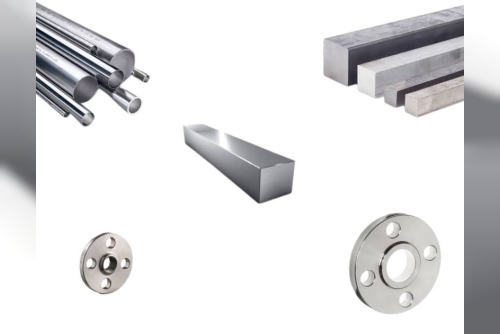Building strength doesn’t always mean living in the gym or loading up heavy barbells. Sometimes, the little things make the biggest difference. With the right gear, your training can feel smoother, safer, and way more effective. Especially in the UK, where people juggle busy routines and limited home space, smart equipment can help you squeeze in solid sessions without needing a fancy setup.
Why Gears Can Change the GameLet’s be real—most of us want workouts that actually fit into our daily lives. That means no two-hour gym visits after work, and no dragging yourself out in the rain just for a quick session. The beauty of training gear is that it adapts to you, not the other way around. Whether you’re training in your living room, a small garage, or even a local park in Manchester or London, the right gear makes strength training approachable.
Here’s where it gets interesting: some equipment isn’t bulky or expensive, but still offers surprising results. Take resistance bands for example. These stretchy but tough tools let you train almost anywhere and hit muscles in ways free weights sometimes can’t. From adding challenge to squats, to supporting pull-ups, they’re flexible enough for all fitness levels.
Making Space Work for YouNot everyone in the UK has a big garden or spare room for workouts. Flats in London or small homes in Birmingham don’t always leave room for racks and benches. That’s where compact gear shines. Things like suspension straps, portable weights, or even adjustable dumbbells can tuck away neatly when not in use.
This isn’t about building the perfect “home gym” either. It’s about making movement possible, even if you’re short on space. Think about it—being able to grab a lightweight set of gear, knock out a twenty-minute session, and pack it away without fuss is way better than skipping workouts altogether.
Consistency Beats IntensityA lot of people assume strength training has to be brutal to work. Truth is, consistency matters far more than intensity. That’s where gear makes the magic happen. It removes excuses. When you’ve got equipment within reach, you don’t need to psych yourself up for a massive session. You can do small, regular bursts instead.
And let’s not forget, modern life in the UK is stressful. Between long commutes, unpredictable weather, and busy family schedules, finding time for a structured workout is tough. Having accessible, low-hassle equipment means you’re far more likely to stick with it.
Mixing It Up Keeps Things FreshStrength training doesn’t have to feel repetitive. Adding variety not only makes sessions more enjoyable but also challenges your muscles in new ways. Swap in different tools on different days. One day it might be bands, another day dumbbells, another day using an exercise ball for balance and core work.
This variety keeps boredom at bay, but it also reduces the risk of hitting plateaus. Your body loves adapting, so changing the type of resistance or the angle of a movement forces it to grow stronger.
Local Touch: UK Fitness CultureSomething worth mentioning—UK gyms and fitness studios have seen a huge shift recently. More people are moving toward hybrid routines. Instead of relying solely on memberships, folks are blending home training with outdoor options. You’ll often spot groups doing circuit workouts at parks in Leeds or community halls in Glasgow.
This cultural shift shows just how valuable gear can be. Instead of hauling heavy kit around, people bring portable tools like straps, kettlebells, or weighted vests. It makes strength work accessible and social without being locked into one place.
Safety Should Come FirstLet’s be honest: pushing yourself is great, but injuries will set you back faster than any missed workout. Using gear correctly helps you build strength without compromising form. For instance, bands reduce joint stress compared to always using heavy weights. Exercise balls add stability work that strengthens supporting muscles you might overlook.
Even in professional UK gyms, trainers often recommend mixing traditional weights with modern tools to balance out risk and reward. So whether you’re a beginner or experienced lifter, it’s worth prioritising safe progress over rushing.
Small Steps, Big GainsBuilding strength isn’t about massive transformations overnight. It’s about small, repeatable habits. Having gear that encourages you to train little and often makes this realistic. You don’t need a two-hour block every day. Sometimes, ten focused minutes in your living room with the right tools are enough to keep your progress moving forward.
And here’s the kicker: those short bursts add up. Over weeks and months, they build stronger muscles, better posture, and improved stamina. The best part? You won’t feel like you’ve flipped your lifestyle upside down to make it happen.
Thinking Beyond StrengthTraining with gear isn’t just about physical strength. It can improve balance, flexibility, and even mental resilience. After all, setting aside time to move your body is a form of self-care. The routine itself builds discipline, and the confidence from feeling stronger carries over into daily life.
In the UK, where work-life balance often feels skewed, having a personal way to unwind while strengthening your body is priceless. It doesn’t require fancy memberships or intimidating gym settings—just tools that keep you engaged and progressing.
Final ThoughtsBoosting strength with gear isn’t rocket science. It’s about making clever choices that fit into your lifestyle. From simple bands to core-focused balls and portable weights, small investments can completely reshape your fitness journey.
Most importantly, strength building doesn’t have to feel like a chore. With gear that fits your space and schedule, you’ll find it easier to stay consistent, safe, and motivated. And that’s what really makes the difference in the long run.












